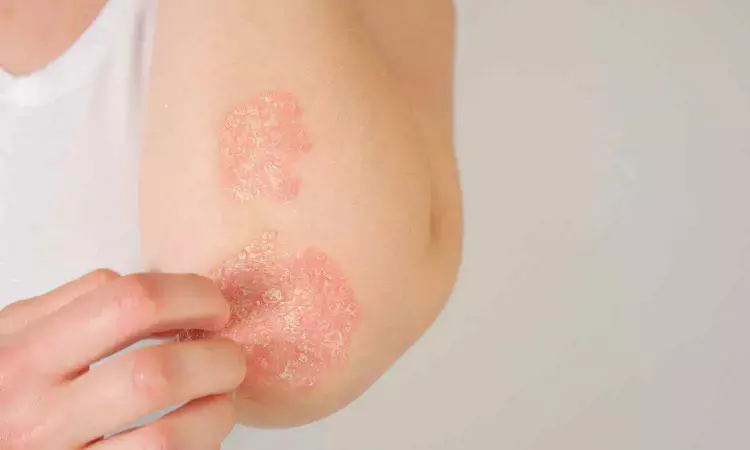- Home
- Medical news & Guidelines
- Anesthesiology
- Cardiology and CTVS
- Critical Care
- Dentistry
- Dermatology
- Diabetes and Endocrinology
- ENT
- Gastroenterology
- Medicine
- Nephrology
- Neurology
- Obstretics-Gynaecology
- Oncology
- Ophthalmology
- Orthopaedics
- Pediatrics-Neonatology
- Psychiatry
- Pulmonology
- Radiology
- Surgery
- Urology
- Laboratory Medicine
- Diet
- Nursing
- Paramedical
- Physiotherapy
- Health news
- Fact Check
- Bone Health Fact Check
- Brain Health Fact Check
- Cancer Related Fact Check
- Child Care Fact Check
- Dental and oral health fact check
- Diabetes and metabolic health fact check
- Diet and Nutrition Fact Check
- Eye and ENT Care Fact Check
- Fitness fact check
- Gut health fact check
- Heart health fact check
- Kidney health fact check
- Medical education fact check
- Men's health fact check
- Respiratory fact check
- Skin and hair care fact check
- Vaccine and Immunization fact check
- Women's health fact check
- AYUSH
- State News
- Andaman and Nicobar Islands
- Andhra Pradesh
- Arunachal Pradesh
- Assam
- Bihar
- Chandigarh
- Chattisgarh
- Dadra and Nagar Haveli
- Daman and Diu
- Delhi
- Goa
- Gujarat
- Haryana
- Himachal Pradesh
- Jammu & Kashmir
- Jharkhand
- Karnataka
- Kerala
- Ladakh
- Lakshadweep
- Madhya Pradesh
- Maharashtra
- Manipur
- Meghalaya
- Mizoram
- Nagaland
- Odisha
- Puducherry
- Punjab
- Rajasthan
- Sikkim
- Tamil Nadu
- Telangana
- Tripura
- Uttar Pradesh
- Uttrakhand
- West Bengal
- Medical Education
- Industry
Air Pollution Linked to Higher Psoriasis Risk Through Accelerated Biological Aging: Study

China: Prolonged exposure to air pollutants may significantly raise the risk of developing psoriasis, with accelerated biological aging acting as a key intermediary, according to a large-scale study published in The Journals of Gerontology: Series A. Conducted by Jie Gao, MSc, and colleagues from Shanxi Medical University, China, the study sheds new light on the complex relationship between environmental pollutants, aging, and inflammatory skin diseases.
Using data from the UK Biobank, researchers tracked 284,544 adults over a median follow-up period of 15.6 years. Participants had an average age of around 56 years, with a nearly equal distribution of men and women. The study specifically investigated long-term exposure to several common air pollutants — fine particulate matter (PM2.5), coarse particulate matter (PM10), nitrogen dioxide (NO₂), and nitrogen oxides (NOx) — and their links to the development of psoriasis.
The study revealed the following findings:
- During the study period, 3,446 individuals (1.21%) were diagnosed with psoriasis.
- Higher levels of air pollution were significantly linked to an increased risk of developing psoriasis after adjusting for confounding factors such as age, sex, socioeconomic status, lifestyle, and health history.
- A 10 μg/m³ increase in PM2.5 was associated with a 95.7% higher risk of psoriasis.
- A similar increase in PM10 exposure raised the risk by 19.7%.
- A 10 μg/m³ rise in NO₂ exposure increased the risk of psoriasis by 9.0%.
- The same increase in NOx levels was linked to a 4.4% higher risk of psoriasis.
- Exposure to all air pollutants was significantly associated with increased biological (phenotypic) age.
- Each one-year increase in biological aging was associated with a 5% higher likelihood of developing psoriasis.
- Accelerated biological aging partially mediated the effect of air pollution on psoriasis risk.
- The mediation effect of aging ranged from 5.96% to 13.86%, depending on the specific pollutant.
- Findings indicate that air pollution may promote psoriasis not only through inflammation but also by accelerating the aging process.
The study emphasizes the broader health implications of environmental pollution, particularly its role in promoting age-related diseases. By highlighting the link between air quality and dermatological health, the researchers advocate for public health policies aimed at reducing pollution levels as a strategy to curb the incidence of chronic conditions like psoriasis.
"The research points to biological aging as a crucial pathway linking air pollution to increased psoriasis risk and emphasizes the need for cleaner environments to support healthier aging and skin outcomes," the authors concluded.
Reference:
Gao, J., He, J., Zhao, W., Cui, J., Zhang, Q., Yang, P., Yang, F., Chen, Y., & Zhang, M. Long-term air pollutants exposure on risk of psoriasis: The mediating role of accelerated biological aging among 284,544 participants. The Journals of Gerontology: Series A. https://doi.org/10.1093/gerona/glaf118
Dr Kamal Kant Kohli-MBBS, DTCD- a chest specialist with more than 30 years of practice and a flair for writing clinical articles, Dr Kamal Kant Kohli joined Medical Dialogues as a Chief Editor of Medical News. Besides writing articles, as an editor, he proofreads and verifies all the medical content published on Medical Dialogues including those coming from journals, studies,medical conferences,guidelines etc. Email: drkohli@medicaldialogues.in. Contact no. 011-43720751


